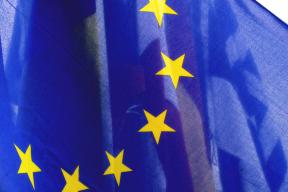European Union faces most serious crisis in history
70 million of Turkish citizens may become members of the European Union

The EU summit opened in Brussels yesterday. The first day of the summit was entirely dedicated to the fate of the European Constitution. The second day is devoted to the EU budget for 2007-2013. These two questions have caused a serious crisis for leaders of the 25 EU states. It goes without saying that it will be impossible to find a solution for these two major problems during the two-day summit. French President Jacques Chirac said in his speech at the summit that a special EU summit would be necessary to conduct in order to discuss fundamental questions about the future of the Union. 
Svetlana Glinkina, deputy director of the Institute of international economic and political research of the Russian Academy of Sciences believes that the current crisis of the European Union has been caused with the union's expansion last year. “The Union will definitely be changing. The Union is weakened as a single organization. It is not ruled out that the union will revise the principles of its integrity in the near future,” the expert said in an interview with Vremya Novostei.
The first question on the agenda, the ratification of the EU Constitution, aroused quite unexpectedly. The referendums in France and the Netherlands cast doubts on the future of the EU Constitution. The leaders of Germany, France and Poland said that the ratification should continue, whereas Great Britain delayed the date of the referendum. Denmark and Portugal will most likely follow the British example.
Spain and the Czech Republic suggested the final term of the ratification should be adjourned for one year, before the end of 2007, to give hesitating states a possibility to conduct repeated referendums.
Specialists expected that EU leaders would decide to suspend the ratification and take a break to develop a new strategy. “Most likely, they will refuse to continue the line of referendums and decide to develop or revise something,” Svetlana Glinkina said.
Specialists believe that the EU will decide not to take any drastic decisions regarding the second issue of the summit, the budget for 2007-2013. EU's rich states and newcomers started dividing the budget of the Union prior to the start of the summit. France and Germany want London to decline the so-called British check - the 4.6 billion euro compensation for the British participation in the agrarian policy of the European Union. It was Margaret Thatcher, who managed to obtain the benefit for Britain in the middle of the 1980s. German Chancellor Gerhard Schroeder said, though, that compensation was not justifiable at all. London tries to do its best to keep the compensation, asking to revise the EU's agrarian policy, according to which the French farmers receive a big part of budgetary assignments. France is strongly against it.
Germany, as the largest donor of the European budget, wants to have the sum of its contribution cut. Italy and Spain do not support the reduction of budgetary assignments for the development of poor regions. All EU old-timers do not want the EU budget to exceed one percent of the members' GDP. Newcomers of the Union insist on a larger number, which affects the assignments that they could receive for road construction, for example.
The principles, on which last year's EU expansion took place, differed from the ones, which were used during the integration of Portugal, Greece, and Spain. Gerhard Schroeder said yesterday that new EU members ought to forget about the attitude, which they required for themselves.
Spokesmen for the EU administration set forth an idea to suspend a further expansion of the European Union. Bulgaria and Romania may join the EU in 2007, whereas Croatia may follow a bit later. Negotiations about Turkey's membership in the EU may start in the near future as well. The news about such a perspective for Turkey and its 70-million strong population to become a member of the European Union became like a bucket of cold water emptied on old Europe.
Subscribe to Pravda.Ru Telegram channel, Facebook, RSS!


